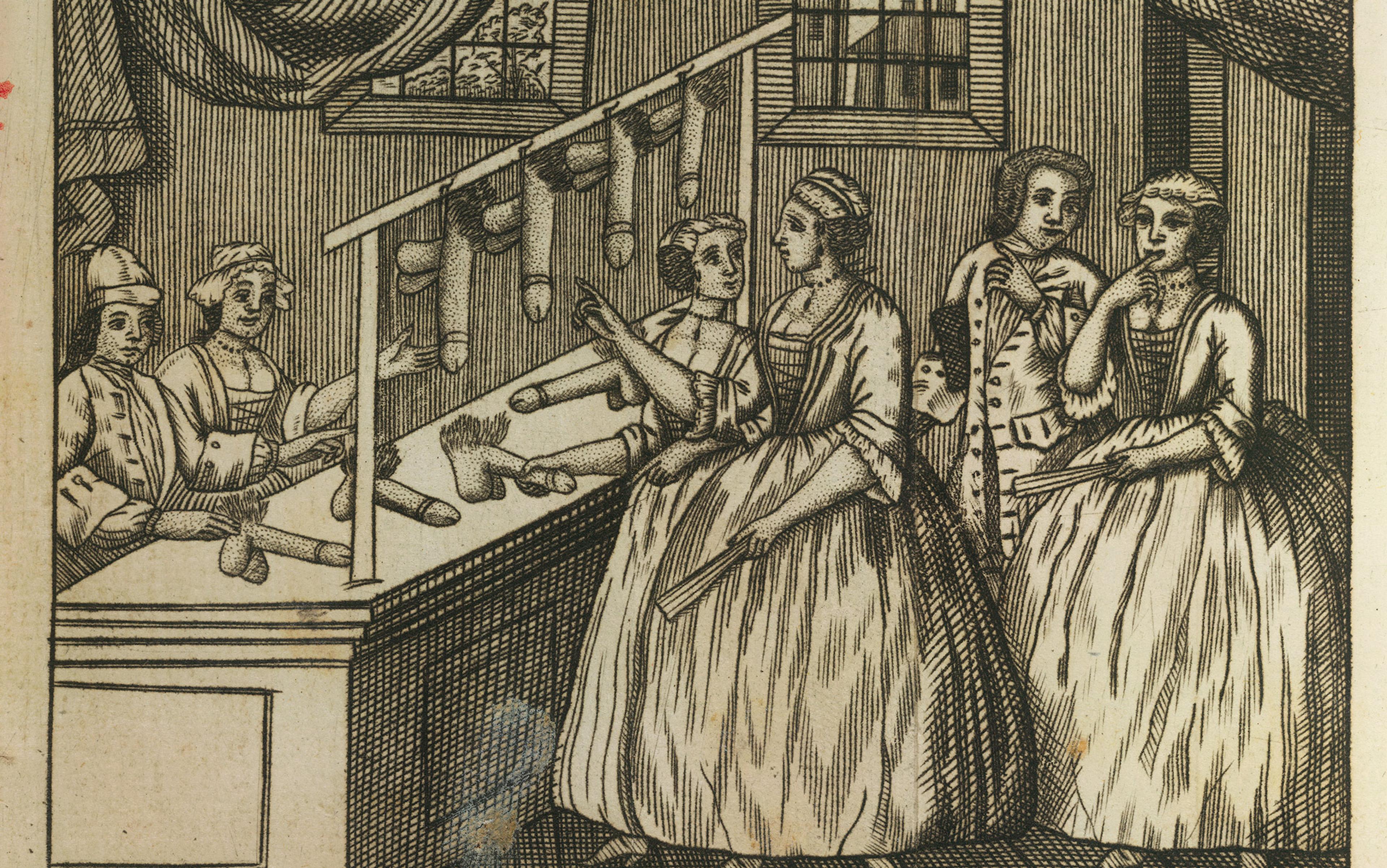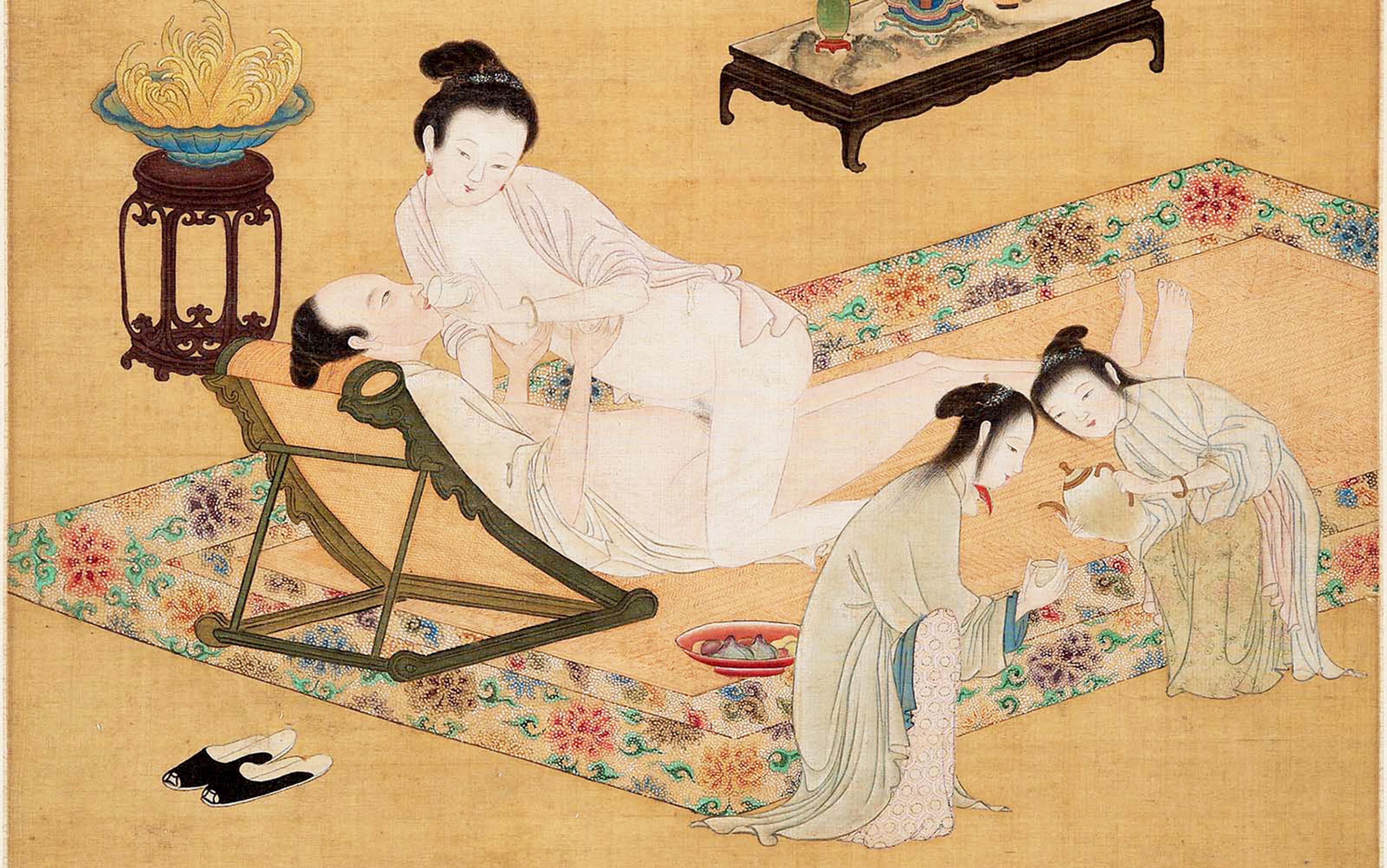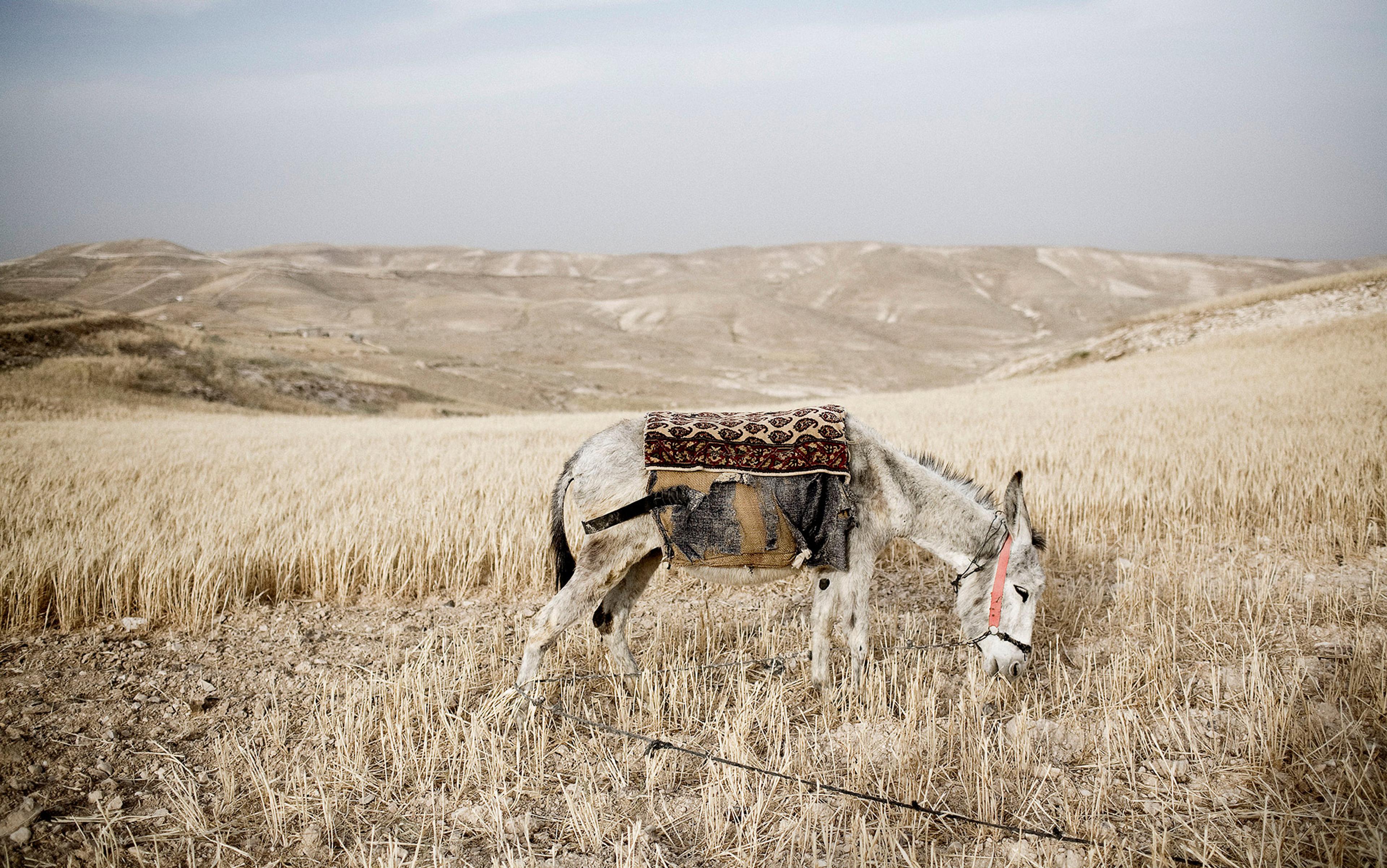‘What does the Bible say about the tongue?’
[Her] mind groped for the scriptures she knew by heart, but could not remember a single one.
‘I… I can’t remember,’ she cried. ‘Please, I’m sorry…’
Another streak of fire lashed her bottom, causing her to scream.
‘The tongue is a fire, a world of iniquity… for he that will love life and see good days, let him refrain his tongue from evil.’
CRACK. ‘Ouch!’
‘He that has a perverse tongue falls into mischief.’
Crack…
‘A church leader’s WIFE must be grave, not a slanderer.’
‘Yes, sir,’ she sniffled. She heard a swish and yelped when another stroke landed full on her bottom, causing her to dance on her toes.
Every story in Leah Kelley’s Punished Wives, a self-published ebook collection of ‘Christian Domestic Discipline’ stories, is structured along these lines. A woman disobeys her husband (or father) – emboldened by the notion that ‘women nowadays thought they could do whatever they wanted’ – only to be punished physically: usually by spanking. An encomium on her chastened rear follows. In one story, it ‘turn[s] crimson as if he’d paddled her good and hard, and each stroke of the leather blanch[ing] it white with a belt mark’. In another, ‘her rosy bottom jerk[s] and quiver[s]’. Finally, the sobbing wife submits, and is – almost always – rewarded with gently elided sex; in the finale of ‘Bridling Her Tongue’, quoted above, Chasity’s pastor husband ‘removed his clothing and comforted her in the way only a husband can, holding her tenderly against his heart while he loved her with his body’.
Are these stories designed to instruct – or to titillate? For couples committed to the ‘lifestyle’ of Christian Domestic Discipline (or CDD), the answer is both.
Practitioners of CDD enact a literal obeisance to the words of St Paul in Ephesians: ‘Wives, submit yourselves to your own husbands, as unto the Lord. For the husband is the head of the wife, even as Christ is the head of the church: and he is the saviour of the body.’ On this faith-based paradigm of patriarchal submission, punishment (‘corner time’, spankings, humiliation) helps the wife correct any problematic behaviour – from spending too much money on clothes to lying about oversleeping on a work day. ‘Maintenance’ spankings, punishment not for any infraction but rather as a reminder of the husband’s supremacy, are also common.
Members – mostly American, mostly evangelical, and mostly scattered around the American South – communicate primarily online, on private, 4,000-member Yahoo listservs and forums (although a separate, smaller branch has found a home on the kink website Fetlife.com), to discuss everything from the ideal position for spanking (‘OTK’, or over the knee, is the favourite) to the possibility of ‘collaring’ wives. They also craft and read erotic fiction: Amazon features 152 ‘Christian Domestic Discipline’ ebooks, by prominent members of the online community, such as Leah Kelley and ‘Bulldog’.
To an outsider, CDD might seem counterintuitive, the incursion of contemporary kink into a fiercely traditionalist understanding of family. A 2013 Daily Beast article referred to the practice glibly as ‘Spanking for Jesus’. But the idea that the erotic and spiritual might be intertwined is hardly new. Although much 20th-century theology – the work of Karl Barth and Anders Nygren, for example – has tended to separate out eros (desire, with a longing for fulfilment or consummation) from agape (charitable, self-giving love), plenty of early Church fathers saw a place for both.
The 4th-century mystic Gregory of Nyssa described himself as ‘wounded by a spiritual and fiery dart of desire’ for God. Six centuries later, St Bernard of Clairvaux wrote deeply erotic poems of submission to Christ’s love: ‘Lord, with my mouth I touch and worship Thee, With all the strength I have I cling to Thee, With all my love I plunge my heart in Thee.’ And of course, the famous visitation of St Teresa of Ávila was hardly chaste: ‘I saw in his hand a long spear of gold, and at the iron’s point there seemed to be a little fire. He appeared to me to be thrusting it at times into my heart… The pain was so great that it made me moan; and yet so surpassing was the sweetness of this excessive pain that I could not wish to be rid of it.’ Sexual – even kinky – imagery has long been part of the religious tradition: submission to God an act with a decidedly erotic edge.
But is CDD a continuation or a violation of that tradition? Are fears expressed by its critics, that it’s Biblically-sanctioned domestic violence, justified? The varied experiences of the CDD wives I spoke to suggest that the answer is both and neither.
The discourse is further complicated by the fact that CDD’s most vocal practitioners are women. ‘You have no idea how tiring it gets, hearing people talk about how women that agree to this are just brainwashed; 90 to 95 per cent of the time it is the wife’s idea, not the husband’s,’ says Nicole, a longtime practitioner of CDD. She’s not exaggerating: the main Yahoo listserv features near-daily examples of women asking how they can get their husbands to punish them more often (the reverse is rare); and nearly all of Amazon’s CDD authors are women. So what it is that makes these women choose CDD?
Women I interviewed describe a hunger for submission that blends the spiritual with the profane. They are careful to distinguish their lifestyle from BDSM, whose strictly sadomasochistic elements they reject. In her CDD handbook, Kelley admonishes husbands in order to reassure their wives: ‘You will never gain pleasure from causing her pain.’ Yet in the same guidebook, she writes how a typical CDD husband is nonetheless ‘aroused by her submissive and trusting gesture by placing herself into a position to receive discipline’. The rationale here is predictable: ‘It seems natural that we would be aroused by [gender] roles in their most basic form. There are probably few things that punctuate our most basic roles in marriage more than the dominance and submission of a discipline session.’
The CDD practitioner Nicole likewise characterises her disciplinary sessions as deeply erotic encounters: ‘When my husband whips me, I feel his love, his strength and his caring. When I submit to him, he feels my submission and my respect [and it] does increase his desire for me. When I am whipped, I lubricate and he often becomes erect. When I am whipped for maintenance, I usually perform oral sex on my husband. This is often followed by intercourse. When I am punished, we almost always have sex afterward. I don’t see this as BDSM but I will leave it to others to decide how to categorise it.’
Translated into familial terms, submission to God becomes submission – erotic and domestic – to the man of the house. It’s a necessarily patriarchal system: the CDD term ‘Head of House’, lovingly shortened to HoH, can refer to husband or father alike. It’s a system that treats households, rather than individuals, as the foundational blocks of the relationship with God: younger children submit to older children, children to their mother, their mother to the father, the father to God. The family’s piety is understood not simply via its members’ relationship to God – only the father has a ‘direct line’, so to speak – but through individual members’ willingness to fulfil their natural roles: as obedient children, or surrendered wives. To fail at being part of a Christian family is, by extension, to fail God.
For Nicole, who grew up in a CDD household, suggesting CDD to her initially-reluctant husband was a natural manifestation of her own upbringing. ‘I was subject to maintenance [whippings by my father] every two weeks and I rebelled against it. I thought it was terribly unfair that I was being whipped for no apparent reason. Later… it did help me focus on being on the right path and learning to obey and submit… By time I was 15, a light came on in my head and I saw the value of CDD… I could feel that I craved to submit to a man and that I needed not only his love but his discipline.’
Another CDD wife, Dana, says that mostly her punishment comes when she does ‘anything that puts my health or safety at risk’ – from getting a speeding ticket to neglecting prescribed medication. ‘My husband says he loves me too much to lose me and [that] it is his job to protect me from things, even if he has to protect me from myself.’ This idea of punishment-as-protection – God’s judgement enacted through the conduit of the husband – has its counterpart in the secular realm: a major trope of the pop-BDSM novel Fifty Shades of Grey, after all, is that Christian Grey punishes the clumsy, infantile Ana for eating too little, or otherwise ignoring her physical health.
Yet there is one significant difference between a CDD marriage and Christian and Ana. A CDD wife like Nicole cannot withdraw consent in the moment of punishment – CDD, unlike BDSM, has no ‘safe words’ – and sees her sacrifice of autonomy as an act of trust: ‘If a wife cannot trust her husband to not beat her within an inch of her life, then why would she ever have married him?’
Nicole (like the other women I spoke to) emphasises that submission is a religious calling that transcends the psychological and erotic alike. She quotes Paul’s exhortations in Ephesians, explaining that while women need love, men need respect. The relationship between the man and woman should be a mirror of the relationship between the self and God: ‘A wife should be giving their husbands the same absolute submission that they would give Christ.’
There are cases, however, where CDD is less a conduit to God than a roadblock. One of the movement’s most prominent members – who ran a major CDD website – has publicly attempted to leave the movement, even as she remains in a marriage that she acknowledges is physically and mentally abusive. (I’ll call her Jane.)
My husband brought me to their house and our neighbour goes, ‘if she were my wife I’d take her home and tear her butt off’
Jane has been married for 25 years, CDD for eight. Stuck in a marriage rife with physical and sexual abuse, she looked to CDD out of desperation, despite first encountering the movement listed on a domestic violence website. Like many evangelicals, Jane felt that being a good wife was the most important part of being a good Christian. ‘I knew I had to focus on my husband more than the Lord,’ she said in a telephone interview. ‘I was trading my husband for salvation. But I was losing salvation anyway.’
Jane became a vocal champion of CDD, but she soon grew conscious of her inability to revoke the consent she’d once given to physical and sexual violence. CDD became a totalising psychological force: no less all-encompassing for her than for Nicole. ‘You can’t [revoke consent]. Because the men love it… You’re looking to him instead of looking to God… You have to have your own relationship with Jesus. And it really does leave Jesus out of the mix. Because you’re still looking to your husband to stand like an intercessor.’
A few months ago, says Jane, she posted on Facebook to express her disillusionment with the lifestyle. Within minutes, CDD neighbours had texted her husband, who brought her over to their house for an intervention: ‘[My husband] brought me to their house and I’m sitting on the couch and we’re talking and [our neighbour] goes, “if she were my wife I’d take her home and tear her butt off” – like, this is so creepy!’ Jane and her husband are still together.
Nicole’s, Dana’s and Jane’s stories are very different. But in all three we find intertwined strands of submission, sex, and spirituality: an insistence that erotic acts are also spiritual ones. Their accounts carry echoes of the mystical language of St Teresa or Bernard of Clairvaux – after all, there’s nothing particularly new, in Christian discourse, about the idea that our sexual selves are a shadow of our religious selves. Our desire for God, in this tradition, is always necessarily erotic: it is a hunger for a transcendent greatness that reflects a fundamental part of who we are as human beings. To submit is erotic, because our desire for God is erotic. In this context, we can even read Dana’s or Nicole’s desire for their husbands as a corporeal manifestation of the Christian human erotic condition: an incarnation of divine desire.
Things get murkier still when that desire – and the submission it entails – cleaves so neatly among gender lines. Dr Anbara Khalidi, a specialist in American evangelicalism at Wadham College, Oxford, notes that the ‘intercessor’ model we find in CDD – where a wife’s religious relationship is almost exclusively with and through her husband – is a relatively new development in a Protestant tradition that has long been wary of an ecclesiastical hierarchy separating any individual from a personal relationship with God. ‘So what’s happening to pervert that relationship [of God] so that it’s having to be filtered through the male figure of the family?’
Perhaps counterintuitively, it is patriarchy – not eroticism – that gives CDD its novelty. This novelty, Khalidi notes, is particular to a wider social trend within the contemporary American evangelical tradition, in which an orderly Christian family becomes a bulwark against perceived cultural/secular threats – homosexuality, feminism, humanism. Put another way, patriarchal traditionalism becomes a means by which the secular is coded as ‘other’. The husband, meanwhile, comes virtually to replace God: ‘What you see is the assumption that the husband’s word is [automatically] aligned with God’s Law.’
In erotic CDD stories, like those of ‘Bulldog’ – which feature the HoH taming both wife and nubile teenaged daughter – the HoH appropriates not just divine power, but also divine desirability. What St Theresa feels for God’s shaft, CDD wives are at best encouraged, at worst forced, to feel for their husbands, even as their own autonomous erotic selves – and direct erotic relationship with God – are denied. After all (like Fifty Shades’ Ana), a CDD wife can’t even be trusted to take care of her own physical safety without a husband-father to monitor her speeding tickets and pill intake. The system works insofar as it provides space for women to be erotic selves (not a given in religious environments) and explore the consequences of submission. But where the dynamic breaks down – or turns toxic – is where it centres its submission: in man, not in God.
A major challenge for evangelicalism, Khalidi notes, is how to contend with the ‘feminisation’ that comes from divine submission. How can men retain their cultural masculinity when submitting to Christ? For evangelical Christians, she says, salvation is ‘a penetrative act, the body is physically open, Jesus penetrates you and possesses you — it’s very feminising’. Some Christian traditions lean on a ‘muscular Christianity’ that codes submission in military terms of obeisance, thus preserving masculine identity within a feminising context. But CDD, she says, does something different, and perhaps more dangerous: it creates a discourse where ‘women are the only people who are required to submit’. In such a paradigm, desire is indistinguishable from virtue: a woman who genuinely craves her husband’s spankings and a woman who feels the need to perform her role as a ‘good Christian wife’ by publicly saying she craves it, might not be so easily told apart. After all, Jane’s published writings aren’t so dissimilar from Nicole’s.
Some scholars of religion, like Valerie Saiving and Daphne Hampson, have wondered whether submission, in women, is desirable at all? Men have been socialised, after all, to seek power; to submit is, for them, a kind of corrective against what Hampson calls ‘the male problem, in thinking in terms of hierarchy and domination’. But does the validation of submission only cause women, already socialised into extreme self-abnegation, to deny their autonomy to the point of personal and spiritual danger?
Can a healthier understanding of sexual desire lead us to an understanding of God more nuanced than a sovereign figure?
Certainly, on a secular-erotic level, feminist critics have criticised kink on similar grounds. Feminist writers from Alice Walker to Judith Butler contributed to the 1982 manifesto Against Sadomasochism – a critique of kink on feminist grounds – while Sheila Jeffreys, in Unpacking Queer Politics (2003), defined it as a form of ‘self-harm’, resulting from ‘oppressive forces such as sexual abuse, bullying, physical violence, hatred and contempt’. On this reading, desires like Nicole’s or Dana’s are themselves products of a cultural demand for female self-abnegation, and an evangelical culture where virtue is synonymous with an overt willingness to experience pain.
Yet such an interpretation seems oblivious to Nicole’s joy and fulfilment in her erotic encounters with her husband, or to the intimacy that Dana – who once thought herself ‘insane’ – now feels in a relationship in which ‘we are aware of each other’s needs and we both want to do what we can to satisfy [them]’. Can we preserve the erotic fulfilment of these encounters within a religious paradigm, while still recognising its perversion in cases like Jane’s? And can the reverse be true, as well: can a healthier understanding of sexual desire lead us to an understanding of God more nuanced than a sovereign figure – a husband deified – who prefers fearful respect to vulnerable love?
In Cities of God, the Oxford theologian Graham Ward writes of the power of otherness in the erotic encounter. A (very) reductionist view of his argument might go something like this: as human beings, we desire the ultimate ‘other’ in God: the divide between creator and creation being the greatest binary of all. And we mirror this erotic dynamic interpersonally: what we desire in the other is their otherness, all the ways in which they are absolutely unlike us. There are traces of this dynamic in Nicole’s and Dana’s accounts of desiring difference on the gender level – dominant men as ‘real men’, women as ‘real’ (ie non-feminist) women. But Ward goes further: only by divorcing sexual difference from biological determinism can ‘heterosexual’ love (which, in his view, could be between two people of any sex) find its truest expression: ‘The Church must sanctify difference, must examine and discern difference in all the relationships it sanctifies.’
In such an understanding, Nicole and her husband, or Dana and hers, would be called upon to experience one another as individuals, to celebrate – in their erotic union – one another’s bodies, one another’s quirks, and – yes – one another’s kinks. Nicole’s submission to her husband would not be predicated on her gender, but on her total self. Their desire for one another bridges the gap between them, just as, in religious terms, God’s love and desire for his people bridges the gap between creator and creation. We move here from a hierarchy of God-man-woman to a binary of God-creation.
A vulnerable God might offer women a model for human interaction that allows for both sexual submission and erotic equality
Such a paradigm, too, could admit husbands into the experience of submission: instead of structuring submission as de facto wife to husband, husband to God, the act of submission within the bedroom (and without) is opened equally to both parties, and through it, both parties are open equally to God. Either, or both, might experience submission, but such vulnerability would be rooted less in the fact of their bodies than in what sexual historian Romana Byrne calls ‘aesthetic sexuality’: ‘a deliberate and conscious form of self-creation and social communication’ through the adoption and expression of sexual roles.
Implicit here is a challenge to the view of God found in many CDD communities, where God is characterised as, essentially, a husband writ large, demanding respect prior to love. Ward insists we view submission and desire from another angle: not just the human need for God, but the divine need for humanity – a love that frames the human-God encounter not as a series of submissions, but as a mutual self-giving. As Ward puts it: ‘There can be no kenotic love which is not erotic also. There is a desire to give and a diremption in receiving. The endless giving without reception announces a demonic and nihilistic logic, under the ideology of which many women and gay men have suffered in silence. Endless giving becomes indifferent to itself.’
A vulnerable God, a Christ-like figure – a God in whose image not only husbands but wives are made – might offer women like Nicole and Jane alike a model for human interaction that allows for both sexual submission and erotic equality.
You might think that looking for a theological reading on sex is an outmoded effort, one that befits a vanished puritanical era. But for women like Dana, Nicole, and Jane, and for thousands more belonging to a wider evangelical tradition in which the husband-wife relationship is integral to religious identity, the possibility of sanctifying sex – and yes, even kink – awakens the possibility of bringing women closer to the God they crave.






